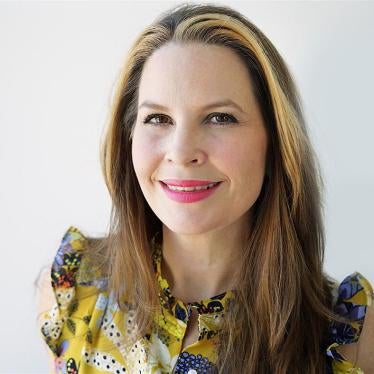Russian officials up to President Vladimir Putin have been trying to reassure the International Olympic Committee that its laws against lesbian, gay, bisexual and transgender (LGBT) people won’t have an impact on the 2014 Winter Games in Sochi. Moscow has said that it will respect international norms against discrimination under the agreement it made when it was awarded the Olympics.
Don’t believe it.
Russia’s scorn for international norms got a public airing last week when a state TV channel, Rossiya 1, broadcast audio recordings from a recent private meeting of human rights advocates and Russian LGBT activists.
The excerpts, aired during an openly anti-gay broadcast, could have been obtained only through surveillance.
The meeting, which I attended, was held to discuss the pernicious anti-gay law passed in June and its potential implications for the Olympics. Rights advocates gathered on a weekend in the St. Petersburg Holiday Inn, part of an international chain that was a sponsor of the 2012 Summer Games in London. One of the main issues discussed was whether the Olympics would worsen the deteriorating climate for LGBT rights in Russia.
A few weeks later, on Nov. 13, the show “Special Correspondent” broadcast an hour-long segment debating whether gay “perverts” and “sodomites” are part of a “Western expansion of sin in Russia.” Rossiya 1’s parent is an official Olympic broadcasting franchise-holder, and every frame of the show, broadcast to viewers across Russia, proudly featured the Olympic rings under the channel’s logo.
This popular show purports to be investigative journalism, but debate, which can include participation from a studio audience, can quickly degenerate into shouting matches. Some episodes have included shrill, poisonous invective against a host of reviled people in Russia. That was the case last week.
“Special Correspondent” is known for demonizing critics of the Russian government and independent activists, portraying them as puppets who help in Western governments’ efforts to destroy Russia. After the ban on homosexual “propaganda” was adopted in June, “Special Correspondent” began spreading homophobic propaganda, justifying the blatantly discriminatory law as necessary to “protect our children from perverts.”
At the St. Petersburg meeting, rights activists discussed concerns about their safety and the hostility toward LGBT citizens by officials in Russia. The show used audio from our meeting to support a twisted argument that the country was under assault by a Western-sponsored gay movement that aims to destroy Russian values.
“Western, European sodomites are trying to infiltrate Russia and organize a protest movement here, among our Russian perverts,” host Arkady Mamontov said in his opening comments.
At the end of the broadcast, Mamontov retold the biblical story of Sodom and Gomorrah. “Ever since then, the real name by which homosexuals are known, just so you, our viewers, know, is: They are not gays, they are sodomites,” Mamontov said.
It is easy to doubt the sincerity of Russia’s promises to respect the rights of gay Olympic athletes when a state TV channel brazenly uses secretly recorded audio of human rights advocates to stoke an anti-gay campaign.
This incident is beyond any international norms of acceptable behavior, especially in a climate in which defenders of gay rights are targeted with discriminatory laws and violence on the streets.
In response to the international outcry over the anti-gay propaganda law, some Russian officials have cited the fact that gay clubs are permitted to operate in Russia as evidence that all is well for gay men and lesbians. The lesson of this spying episode, though, is that in Russia, LGBT people don’t have the right to meet in private.
This latest episode should worry the International Olympic Committee even more that the Sochi Olympics will leave a legacy of contempt for the values embodied in the Olympic Charter.
Corporate sponsors— which include Coca-Cola, Procter and Gamble, Visa, Panasonic and General Electric — underwrite the Olympics with billions of dollars, and they should publicly condemn Russia’s climate of hate, as should NBC, which has the rights to air the Olympics in the United States and expects enormous sponsorship advertising revenue. At a minimum, these companies should speak out against a law that violates not only the Olympic Charter but also the principles embodied in their own social responsibility policies.
All sponsors of the Sochi Games should take a more forceful public stance against the rights violations that have marred the preparation of the Olympics, and they should support escalating demands for institutional reform to ensure that future Olympic host countries will pledge to uphold basic human rights and play by the rules.
Assurances from Russian officials that there will be no discrimination at Sochi are irrelevant and misleading. Who can honestly argue that the country’s anti-gay stance will not affect the environment for the Olympic Games?







